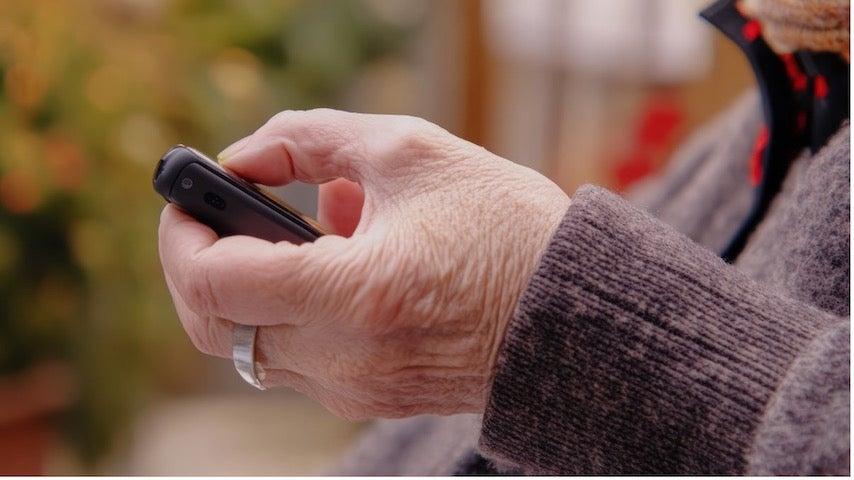
Related Topics
Although not an inevitable part of the aging process, falls are a significant concern for older adults and can be scary, dangerous, and even life threatening. And certain medications, as well as combinations of both over-the-counter and prescribed drugs, can increase the risk of falling.
What can older adults and the people who care about them do? Getting regular exercise, having vision checked, making one’s living environment safer, and managing medications are all steps that can help to prevent a fall. Be sure to tell your doctor about all medications, even herbal remedies, you are taking.
And when it comes to managing medications, a thorough medication review is very important for older adults who are at risk for falls.
How can a HomeMeds medication review help prevent falls?
HomeMedsSM is an evidence-based program developed at Partners in Care Foundation in San Fernando, California, that is a great tool for identifying potential medication-related hazards. HomeMeds can be used as part of a case management program to help screen for medications that are particularly risky for older adults. It uses algorithms in conjunction with a pharmacist review to look at five important problem areas affecting individuals:
1. Unnecessary therapeutic duplication
This means someone is taking two medications that essentially do the same thing.
"This can happen when a patient is discharged from the hospital and they are given a prescription for a brand name drug and they are already taking the generic version, which was prescribed by their primary care physician," said HomeMeds consulting pharmacist Preston Hall. "It could also be that they are taking an anti-inflammatory prescription like meloxicam and an over the counter like Aleve. Taking both anti-inflammatory drugs could cause a gastrointestinal bleed."
Another example: taking multiple antidepressants, antianxiety, or blood pressure medications.
"The prescribed medications may be the appropriate treatments, but HomeMeds lets us dive deeper by alerting the pharmacist to analyze if the risk versus benefit is appropriate for that individual," Hall said.
2. Medications that can cause falls and confusion
These can include psychotropic medications like anti-depressants or anti-anxiety drugs that can affect balance, as well as antipsychotic medications used for behavioral issues, which can increase the risk of dizziness and confusion and increase a risk for falls, Hall said.
Health experts flag these types of medications as increasing falls risk:1
- Psychoactive medications, including anticonvulsants, antidepressants, antipsychotics, benzodiazepines, opioids, and sedatives/hypnotics
- Prescription and over-the-counter antihistamines
- Muscle relaxants
- Medications affecting blood pressure
- Anticholinergics, including medications to treat urinary incontinence, overactive bladder, or COPD
3. Medications that can cause cardiovascular problems such as high/low blood pressure or low pulse
"This protocol is based on an alert which is triggered when the recorded blood pressure and/or pulse reading is below or above normal ranges," Hall said. "When the alert is triggered it will have the pharmacist examine if any of the medications currently taking could be the contributing factor. Typically the medications that contribute to this are medications that treat hypertension."
4. Inappropriate use of non-steroidal anti-inflammatory drugs (NSAIDS) in people with high risk of peptic ulcer/gastrointestinal bleeding
Use of such drugs could be considered "inappropriate" in people older than 80 because of age-related increased risk of ulcers and bleeding when taking an NSAID, including aspirin. This medication review alert also happens if someone is taking a NSAID and also another medication, such as an anticoagulant, that, when combined with a NSAID, would increase the risk of bleeding.
5. Reviews for effectiveness of opioid prescriptions and alternate options
Opioids, if either not prescribed appropriately or not taken appropriately, can substantially increase the risk of side effects, which include sedation, confusion, and loss of balance. All of these side effects can increase a person's risk of falling.
"This is why it is best to recommend alternative treatments and therapies of non-opioid options," Hall said. "The alternatives can either be taken or not taken with opioids to help reduce or fully stop the use of the opioid."
The HomeMeds intervention has four simple steps:
- An inventory of all your prescriptions, over the counter medications, and any supplements is entered into a web-based tool
- The program assesses the inventory for duplications, psychotropics, NSAIDS (such as Ibuprofen and Tylenol), and other potential medication risks
- A pharmacist reviews the HomeMeds analysis and identifies any risks
- The prescribing physician is notified by the pharmacist of risks and the need to act on behalf of their patient
When potentially serious issues are identified with the medications a patient is taking, the physician will generally call the client or their caregiver to discuss the concerns or ask the client to come into the office to discuss options. A report is also provided to the patient and/or their caregiver so that they can bring up any concerns with their physician at their next visit.
How has medication review helped prevent older adults from falling?
HomeMeds is currently being used by 70 organizations in 23 states. Improved health outcomes and quality of life have been reported by many clients who have received a HomeMeds review. For example, an 84-year-old in Pennsylvania who reported having three falls within three months told the staff member doing the review that they were taking an over the counter (OTC) medication that increases the risk of a fall in elderly people.
“I just have been taking the OTC, and I never told my doctor,” the client said.
After the client, family member, and physician reviewed the HomeMeds’ report, the OTC medication was discontinued. The client was also referred to an evidence-based falls prevention program to learn other tangible techniques to aid in their functional abilities and preserve their independence at home.
Another example: an 88-year-old client with multiple medical and geriatric conditions had recently been released from the hospital. The community-based organization’s medication safety staff met with the client to review 25 medications they were taking. The HomeMeds assessment found an OTC sleep aid that was reported to interact adversely with the client’s prescribed medications. The client promptly followed up with their doctor to discuss the pros and cons of continued use of the medication, which was ultimately discontinued. The client was also thrilled to rid their home of expired and unused medications and learn how to safely dispose of those medications.
Following a medication review, physicians have modified prescriptions or helped patients evaluate whether they should continue taking medications that may have adverse interactions with other prescribed medications.
Family members/caregivers have been relieved to know that their loved ones are taking medications that are safe and are providing benefit, rather than causing harm.
HomeMeds helps to facilitate medication reconciliation after a hospitalization, monitor adherence to medications for chronic illnesses. It pairs well with medication management interventions such as dispensers and reminder systems. It fits well with care transition coaching and promotes creative solutions such as using pharmacy students to assist in the review of the patient’s Part D Plan medication therapy management to mitigate costs.
How can I find out more about HomeMeds?
If you are interested in learning more about HomeMeds, visit the Partners’ HomeMeds web page. If you want to know how your organization can adopt HomeMeds, please contact HomeMeds Director Amy Adams at aadams@picf.org, or HomeMeds & Community Wellness Vice President Dianne Davis,at ddavis@picf.org. Or, if you are an older adult who would like to have a HomeMeds review, we are happy to put you in contact with an organization in your community that provides the program. Please contact Amy Adams, and she will help you find an organization that can assist you.
This project was supported, in part ,by grant number 90FPSG0051 and 90CSSG0048 from the U.S. Administration for Community Living, Department of Health and Human Services, Washington, D.C. 20201. Grantees undertaking projects under government sponsorship are encouraged to express freely their findings and conclusions. Points of view or opinions do not, therefore, necessarily represent official Administration for Community Living policy.
Sources
1. Medications Linked to Falls. Fact Sheet. Centers for Disease Control and Prevention. 2017. Found on the internet at https://www.cdc.gov/steadi/pdf/steadi-factsheet-medslinkedtofalls-508.pdf




